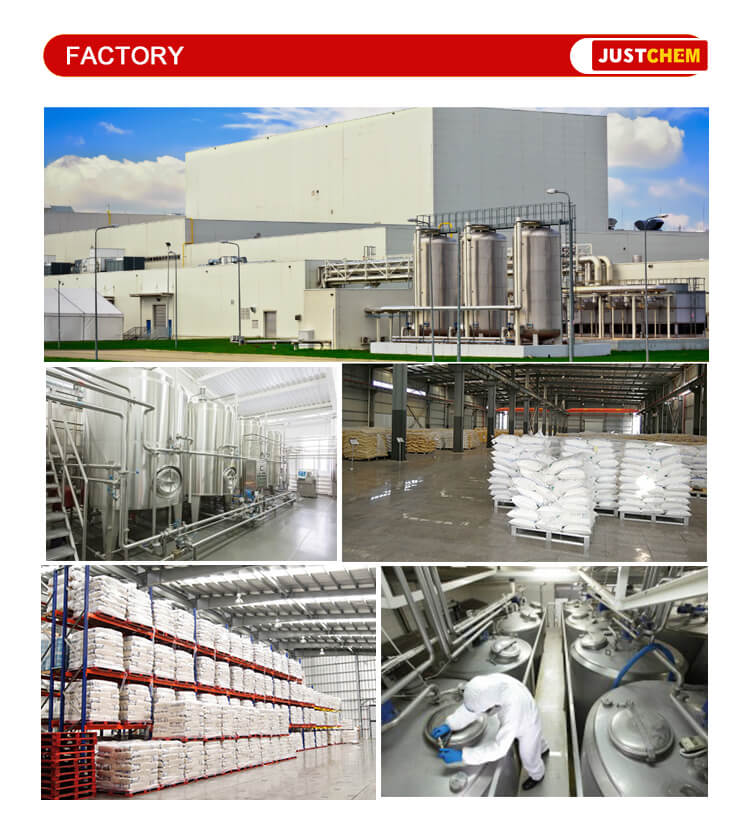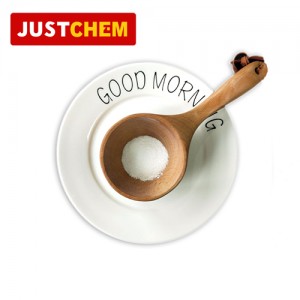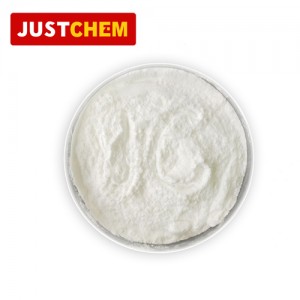Beta Carotene
Short Description:
As a professional Beta Carotene food additives and food ingredients supplier and manufacturer, JUSTCHEM has been supplying and exporting from food additives and food ingredients China for almost 10 years, please be assured to buy food additives and food ingredients at Justchem. Any inquiries and problems please feel Free to send emails to us via sales@justchem.com we will reply you within 1 working day.
C.A.S #: 7235-40-7
Synonyms: beta,beta-Carotene; Carotene; Solatene; trans-beta-Carotene
Assay: 1% / 2% / 10% / 30% 96.0%-101.0%
Quality Standards:
Beta-Carotene contains not less than 96.0 percent and not more than 101.0 percent of C40H56.
Characteristic: Dark red or dark red, shiny side of the ramp hexahedral or crystalline powder.
Melting point: 183ºC
Alpha: 105° (c=0.8, EtOH 25°C)
Solubility: Soluble in carbon disulfide, benzene and chloroform. Do not dissolve in water, propylene glycol, glycerin, almost insoluble methanol and ethanol.
Function and Usage:
Beta-carotene is an antioxidant and therefore may offer some protection against certain cancers and other diseases. and it is a naturally occurring substance present in green and yellow fruits and vegetables. In the body, beta-carotene is converted into vitamin A and is used as a vitamin supplement to prevent or treat vitamin A deficiency. Beta-carotene can help prevent or treat reactions to the sun in some specific groups of patients.
Beta-Carotene 96%
| Items | Standards | ||
| APPEARANCE | YELLOW TO RED FREE-FLOWING POWDER | ||
| FINENESS (US STANDARD SIEVES) | |||
| -THROUGH SIEVE NO. 40 | 100 % SMALLER THAN 40 | ||
| -THROUGH SIEVE NO. 60 | MIN.80 % SMALLER THAN 60 | ||
| Through Sieve NO. 100 | Min.15 % Smaller Than 100 | ||
| Loss On Drying:(%) | ≤5 | ||
| Sulfated Ash(%) | <1 | ||
| Pb(ppm) | <10 | ||
| Arsenic(ppm) | <3 | ||
| Beta-Carotene(%) | ≥96 | ||
| Total Bactertal Count:(cfu/g) | ≤1000 | ||
| Coli Form Bacteria:(mpn/100g) | ≤30 | ||
| Fungi And Yeast:(cfu/g) | ≤100 | ||
| Salmonella:(/25g) | Negative |
Conclusion: Conforms to the standand
Packaging: 5 KG/TIN
Storage: Kept in dry, cool, and shaded place with original packaging, avoid moisture.
Shelf life: 24 month
Beta-carotene is one of a group of red, orange, and yellow pigments called carotenoids. Beta-carotene and other carotenoids provide approximately 50% of the vitamin A needed in the American diet. Beta-carotene can be found in fruits, vegetables, and whole grains. It can also be made in a laboratory.
Beta-carotene is used to decrease asthma symptoms caused by exercise; to prevent certain cancers, heart disease, cataracts, and age related macular degeneration (AMD); and to treat AIDS, alcoholism, Alzheimer’s disease, depression, epilepsy, headache, heartburn, high blood pressure, infertility, Parkinson’s disease, rheumatoid arthritis, schizophrenia, and skin disorders including psoriasis and vitiligo.
Beta-carotene is also in used in malnourished (underfed) women to reduce the chance of death and night blindness during pregnancy, as well as diarrhea and fever after giving birth.
Some people who sunburn easily, including those with an inherited disease called erythropoietic protoporphyria (EPP), use beta-carotene to reduce the risk of sunburn.
There are many authorities – including the American Heart Association, the American Cancer Society, the World Cancer Research Institute in association with the American Institute for Cancer Research, and the World Health Organization’s International Agency for Research on Cancer – that recommend getting beta-carotene and other antioxidants from food instead of supplements, at least until research finds out whether supplements offer the same benefits. Eating 5 servings of fruits and vegetables daily provides 6-8 mg of beta-carotene.
How effective is it?
Natural Medicines Comprehensive Database rates effectiveness based on scientific evidence according to the following scale: Effective, Likely Effective, Possibly Effective, Possibly Ineffective, Likely Ineffective, Ineffective, and Insufficient Evidence to Rate.
The effectiveness ratings for BETA-CAROTENE are as follows:
Effective for…
Treating sun sensitivity in people who have a form of inherited blood disorder called “erythropoietic protoporphyria.” Takin beta-carotene by mouth can reduce sensitivity to the sun in people with erythropoietic protoporphyria.
Possibly effective for…
An eye disease called age-related macular degeneration (AMD). Taking beta-carotene by mouth along with vitamin C, vitamin E, and zinc daily, seems to help prevent vision loss and worsening of AMD in people with advanced AMD. Taking beta-carotene plus antioxidants but without zinc does not seem to improve advanced AMD. There isn’t enough evidence to know taking beta-carotene along with other antioxidants works for people with less advanced macular disease. There is conflicting evidence about whether beta-carotene supplements can help reduce the risk of developing AMD.
Breast cancer. Eating more fruits and vegetable that contain beta-carotene seems decrease the risk of breast cancer in pre-menopausal women who are at high risk of getting breast cancer, including those with a family history and those who use alcohol excessively.
Preventing complications of lung disease (chronic obstructive pulmonary disease, COPD). Eating more beta-carotene in the diet seems to help prevent bronchitis and difficulty breathing in smokers with COPD, but beta-carotene supplements do not..
Asthma attacks triggered by exercise. Taking beta-carotene by mouth seems to reduce asthma attacks that are triggered by exercise.
White patches on the tongue and mouth called oral leukoplakia. Taking beta-carotene by mouth for up to 12 months seems to decrease symptoms of oral leukoplakia.
Osteoarthritis. Beta-carotene taken by mouth may prevent osteoarthritis from getting worse, but it does not seem to prevent osteoarthritis.
Ovarian cancer. Eating a diet rich in carotenoids, including beta-carotene, reduces the risk of ovarian cancer in women after menopause.
Physical performance. Eating a diet that contains a higher amount of beta-carotene seems to improve physical performance and muscle strength in older people.
Preventing complications post-childbirth. Taking beta-carotene by mouth before, during, and after pregnancy seems to reduce the incidence of diarrhea and fever post-childbirth.
Pregnancy-related complications. Taking beta-carotene by mouth seems to reduce the risk of pregnancy-related death, pregnancy-related night blindness, and post-childbirth diarrhea and fever in underfed women.
Sunburn. Taking beta-carotene by mouth may decrease sunburn in people sensitive to the sun. However, taking beta-carotene is unlikely to have much effect on sunburn risk in most people. Also, beta-carotene does not appear to reduce the risk of skin cancer or other skin disorders associated with sun exposure.
β-Carotene is a strongly colored red-orange pigment abundant in plants and fruits. It is an organic compound and chemically is classified as a hydrocarbon and specifically as a terpenoid (isoprenoid), reflecting its derivation from isoprene units. β-Carotene is biosynthesized from geranylgeranyl pyrophosphate. It is a member of the carotenes, which are tetraterpenes, synthesized biochemically from eight isoprene units and thus having 40 carbons. Among this general class of carotenes, β-carotene is distinguished by having beta-rings at both ends of the molecule. Absorption of β-carotene is enhanced if eaten with fats, as carotenes are fat soluble.
Carotene is the substance in carrots, pumpkins and sweet potatoes that colors them orange and is the most common form of carotene in plants. When used as a food coloring, it has the E number E160a. The structure was deduced by Karrer et al. in 1930.In nature, β-carotene is a precursor (inactive form) tovitamin A via the action of beta-carotene 15,15′-monooxygenase. Isolation of β-carotene from fruits abundant in carotenoids is commonly done using column chromatography. It can also be extracted from the beta-carotene rich algae, Dunaliella Salina. The separation of β-carotene from the mixture of other carotenoids is based on the polarity of a compound. β-Carotene is a non-polar compound, so it is separated with a non-polar solvent such as hexane. Being highly conjugated, it is deeply colored, and as a hydrocarbon lacking functional groups, it is very lipophilic.
1.What kinds of certificates can you offer?
We can offer HAPPC, KOSHER, HALAL Certificates, ect.
2. Are you a manufacturer or a trading company?
In 2016, We set up a branch company in Shanghai and create our new brand JUSTCHEM, dedicating to offer better sales service for food additives as well as to expand overseas markets.
3. How long shall we wait for your reply?
We can guarantee to reply your inquiries in less than 24 hours in working days.
4. What kinds of transportation types can you provide?
Our main transportation methods include air transportation, railway transportation and sea transportation.
5. How long will I receive my good?
Usually we will arrange the shipment in 7 -15 days.
6. What documents you provide?
Usually, we provide Commerical Invoice, Packing List, Bill of loading, COA , Health certificat and Origin certificate. If your markets have any special requirements, let us know.
7. What is loading port?
Usually is Shanghai , Qingdao , Tianjin,Dalian and ect.
 Justchem have departments including international sales, purchasing, technical, after-sales service, network engineering, general affairs, etc. We are able to offer service and support in English, Portuguese, Russian, Japanese, Korean and other languages. Within the efforts of all staff of us, our market has covered more than 40 countries and areas, which prompting us to be the most reliable partner of food producer and merchant all over the world. We have more than 20 professional sales offer you 7*24 online sales service.
Justchem have departments including international sales, purchasing, technical, after-sales service, network engineering, general affairs, etc. We are able to offer service and support in English, Portuguese, Russian, Japanese, Korean and other languages. Within the efforts of all staff of us, our market has covered more than 40 countries and areas, which prompting us to be the most reliable partner of food producer and merchant all over the world. We have more than 20 professional sales offer you 7*24 online sales service.




